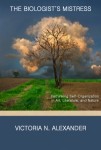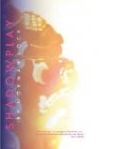 Dactyl Foundation offers a $1000 award to any literary fiction author, writing in English, who has published a book-length work, novel or collection of short stories. To be considered for the 2016 award, an author must be nominated by a peer, another published literary fiction author who must submit a review of one of the author’s works to Dactyl Review by December 31, 2015.
Dactyl Foundation offers a $1000 award to any literary fiction author, writing in English, who has published a book-length work, novel or collection of short stories. To be considered for the 2016 award, an author must be nominated by a peer, another published literary fiction author who must submit a review of one of the author’s works to Dactyl Review by December 31, 2015.
The Dactyl Foundation Literary Award is designed to encourage authors to work together to promote literary fiction. The way the publishing and awards system is currently organized, too few people are in control of what books become known to the public. Too often the people making the decisions are more interested in the expected market performance of the work than in its literary merits. Dactyl Foundation wants to make it possible for more literary fiction writers to have a voice in deciding which works are recognized as literary. Dactyl Review does not have a staff of reviewers or judges; instead the literary fiction community is called upon to review and judge the works considered for the award.
See more: http://dactylreview.com/2015/11/09/nominate-your-favorite-literary-fiction-author-for-the-1000-dactyl-award/





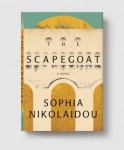 As I begin to write this on January 20, 2015, the news from Buenos Aires isn’t good. Albert Nisman, the federal prosecutor assigned to finally uncover the truth about the 1994 bombing of the Argentina Israelite Mutual Association, a Jewish community center, was found dead in his apartment. Nisman was about to reveal a high-level government conspiracy to cover up Iran’s role in the bombing, which killed 85 people. Argentina has long struggled with corruption and politicization of its government institutions, making it almost impossible for the nation to confront its demons—from sheltering Nazis to the 1970s/1980s rounding up and killing of leftists, communists, intellectuals, and Jews who became known as the desaparecidos opposed to the ruling right-wing Junto. The powerful are usually protected.
As I begin to write this on January 20, 2015, the news from Buenos Aires isn’t good. Albert Nisman, the federal prosecutor assigned to finally uncover the truth about the 1994 bombing of the Argentina Israelite Mutual Association, a Jewish community center, was found dead in his apartment. Nisman was about to reveal a high-level government conspiracy to cover up Iran’s role in the bombing, which killed 85 people. Argentina has long struggled with corruption and politicization of its government institutions, making it almost impossible for the nation to confront its demons—from sheltering Nazis to the 1970s/1980s rounding up and killing of leftists, communists, intellectuals, and Jews who became known as the desaparecidos opposed to the ruling right-wing Junto. The powerful are usually protected.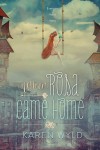 One after one, exotic characters, each with a miraculous tale to tell, come to visit comatose Rosa and her troubled family in Karen Wyld’s
One after one, exotic characters, each with a miraculous tale to tell, come to visit comatose Rosa and her troubled family in Karen Wyld’s  In
In  Flight (223 pages, Tramp Press) by Oona Frawley, is a novel set in Ireland, the United States, Vietnam, and Zimbabwe that explores how its characters have been affected by both old-style colonialism and the new colonialism–corporate globalism that began to rise in the 1990s. Themes center on migration and immigration, on feeling homesick and rootless at the same time. It’s about writing letters home, some of which are sent, some of which are kept.
Flight (223 pages, Tramp Press) by Oona Frawley, is a novel set in Ireland, the United States, Vietnam, and Zimbabwe that explores how its characters have been affected by both old-style colonialism and the new colonialism–corporate globalism that began to rise in the 1990s. Themes center on migration and immigration, on feeling homesick and rootless at the same time. It’s about writing letters home, some of which are sent, some of which are kept.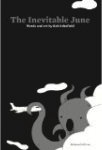 “This morning I crossed a river on a horse made of lightbulbs.”
“This morning I crossed a river on a horse made of lightbulbs.”


 This is a unique American novel, written in the language of the heartland before Jesus became a pawn in the political battle for the American soul. It is written in a subdued, subtle, understated lyrical style. It is as rich and diverse as America herself. It is at once a romance complete with trains, whorehouses, steel mills, and the death of the drive-in-movie theater and a coming of age novel in which the protagonist emerges from the chrysalis to transform into a singing butterfly.
This is a unique American novel, written in the language of the heartland before Jesus became a pawn in the political battle for the American soul. It is written in a subdued, subtle, understated lyrical style. It is as rich and diverse as America herself. It is at once a romance complete with trains, whorehouses, steel mills, and the death of the drive-in-movie theater and a coming of age novel in which the protagonist emerges from the chrysalis to transform into a singing butterfly.
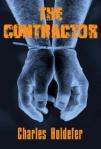
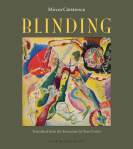
 January 23, 2014
January 23, 2014

 December 23, 2013
December 23, 2013 The Art of Fielding by Chad Harbach
The Art of Fielding by Chad Harbach

 Ongoing
Ongoing Ongoing
Ongoing
